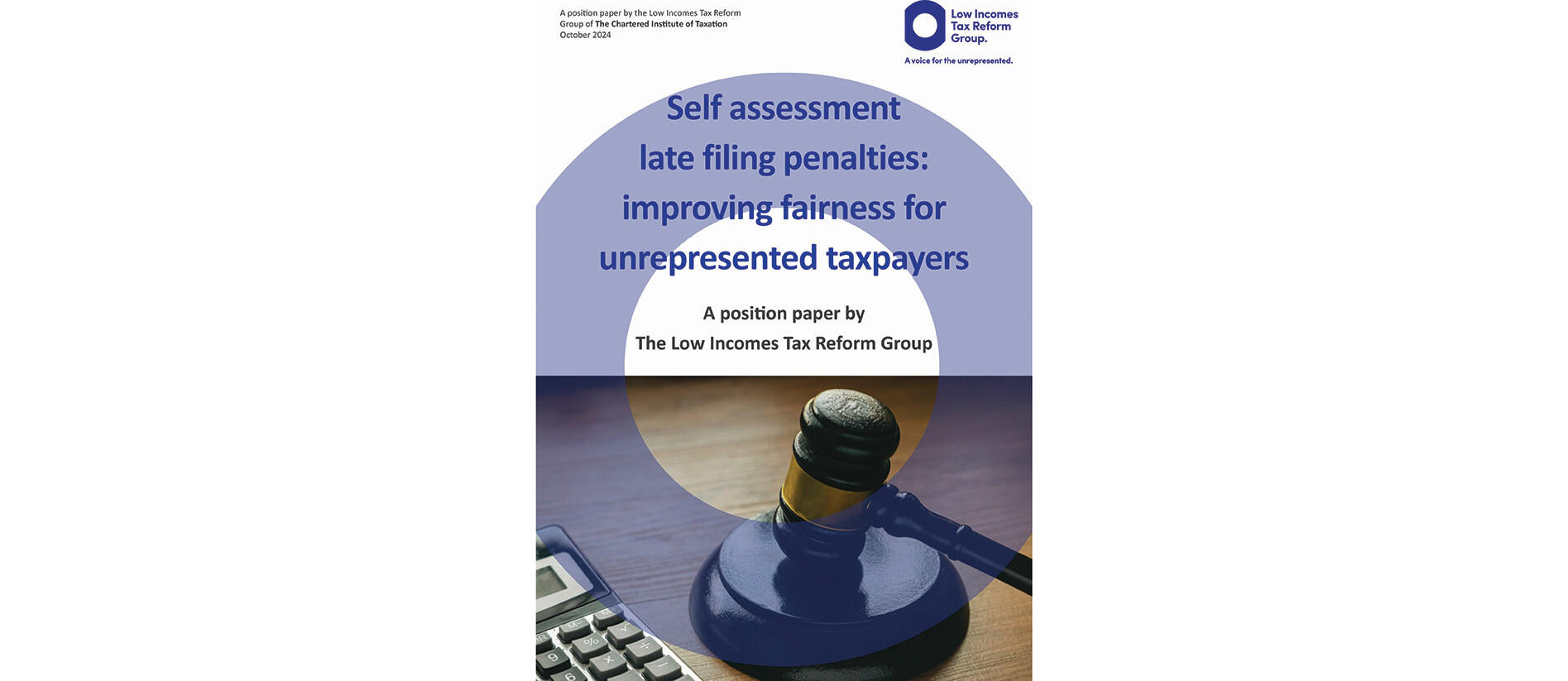LITRG: Two-tier penalties system creates unfairness

CIOT’s Low Incomes Tax Reform Group (LITRG) has urged HMRC to speed up the implementation of the new self assessment penalty regime. The LITRG has expressed concern that delays will leave some taxpayers, including those on low incomes, paying over a thousand pounds more for delays in filing their tax return on time.
In a new paper, ‘Self assessment late filing penalties: improving fairness for unrepresented taxpayers’, LITRG sets out a series of interim steps that could be taken to smooth out the difference between the two regimes if early implementation is not possible.
A new penalty regime was introduced in April 2024 and is initially being rolled out to volunteers in the Making Tax Digital for Income Tax programme. Taxpayers outside of MTD for ITSA will continue under the current penalty regime, as HMRC has been unable to put a timetable on the roll-out of the new regime for these taxpayers. It cites IT limitations as the reason for the delay.
Victoria Todd, Head of LITRG, said: ‘We urge HMRC to bring in the new penalty regime for all taxpayers as soon as they can, but if this is not possible, there are a series of tweaks they could make to the existing regime that will bring it closer to its replacement. These will help to mitigate the unfairness created by a two-tier penalty regime and will offer some protection for low-income taxpayers.’
LITRG’s suggestions include:
- greater leniency so that first-time missed deadlines do not incur penalties;
- easier exit from self assessment for those who no longer need to file a return;
- automatic cancellation of late filing penalties for those in self assessment who are found to no longer need to file a return;
- replacing self assessment with simple assessment for taxpayers with PAYE tax debts; and
- ensuring that GOV.UK guidance on self assessment matches the legal requirements for filing a tax return.
Read LITRG’s report at tinyurl.com/LITRG-penalties.


